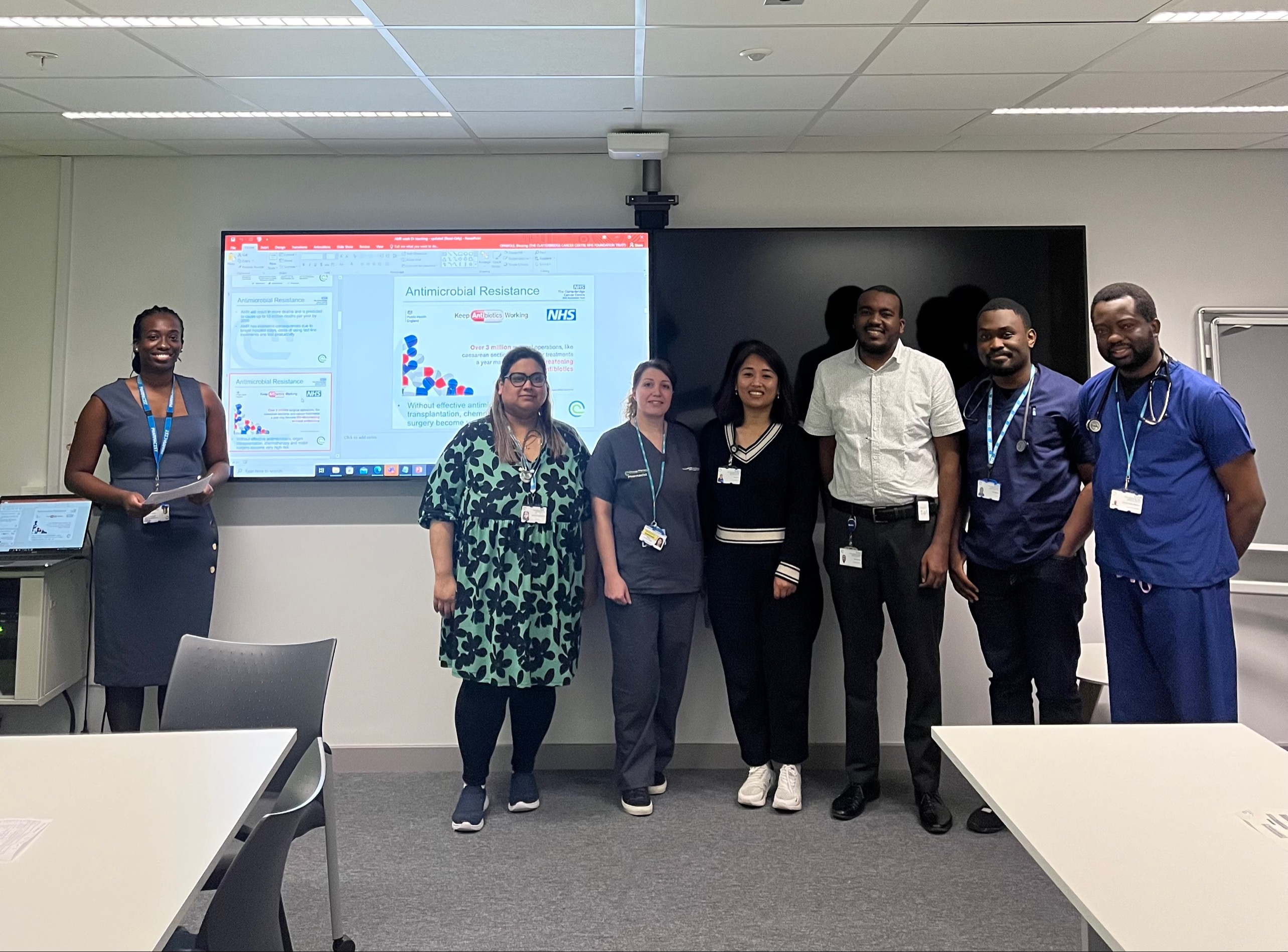'Antimicrobial Resistance is one of the biggest threats to global health today': Blessing Opawole's Blog
Posted 23rd November 2023
This week is World Antimicrobial Resistance Awareness Week. Antimicrobial resistance or AMR might not be something you’ve heard of before, but it’s a really important global health issue and one that could affect all us and the medicines we need to keep us well.

Blessing Opawole is an Advanced Pharmacist here at The Clatterbridge Cancer Centre. In this blog to mark World Antimicrobial Resistance Awareness Week, she tells us all about what AMR is, why it’s important and what we can do to help prevent it.
What is Antimicrobial Resistance or AMR?
AMR happens when the tiny elements, called microorganisms, that cause disease evolve and change over time and stop responding to the medications we take to treat them. AMR is one of the biggest threats to global health today as it makes it harder for us to treat infections and diseases, meaning diseases can spread more easily and people get sicker, more quickly.
What is the main cause of AMR?
AMR is a natural phenomenon – its natural thing things evolve and change over time. Just like we as human beings have evolved over time, so do microorganisms.
However, the process is sped up considerably by inappropriate use of antimicrobial medications. Examples of antimicrobial medications include antibiotics like penicillin which is commonly used to treat all sorts of infections and health problems.
Poor infection control and failing to prevent infections from spreading is also a main cause of AMR, so for example not washing your hands when you’re poorly or failing to wear the right protective clothing if you’re working in a healthcare environment.
What are the effects of AMR?
As AMR increases, infections become harder and even impossible to treat. This can lead to longer hospital stays, more severe illnesses and ultimately, more people dying. Routine operations and having cancer treatments becomes much riskier as they rely on effective antimicrobial medications to prevent and treat infections that may occur.
What measures can we all take to help prevent antimicrobial resistance?
There’s lots of easy things we can do to prevent AMR, mostly around preventing infection and using medications in the right way.
For example, washing your hands regularly is really important.
Make sure you’re up to date on your vaccinations. For example, if your children are starting school next year, make sure you take them for the correct jabs and have a flu jab if you’re eligible.
Keep food at safe temperatures, in the fridge if it needs to be and practice good food hygiene, using separate knives and chopping boards for raw meat and vegetables for example.
Being mindful around medications is also really important. Never demand antibiotics if your doctor has told you you don’t need them and if you do need them, take them as described and make sure you finish the entire dose, even if you’re feeling better. Don’t save any prescribed medication for a later date. And never share any antibiotics that have been prescribed for you to other people.
Photo: Blessing Opawole (far left) during a teaching session with her colleagues as part of Antimicrobial Resistance Awareness Week.
